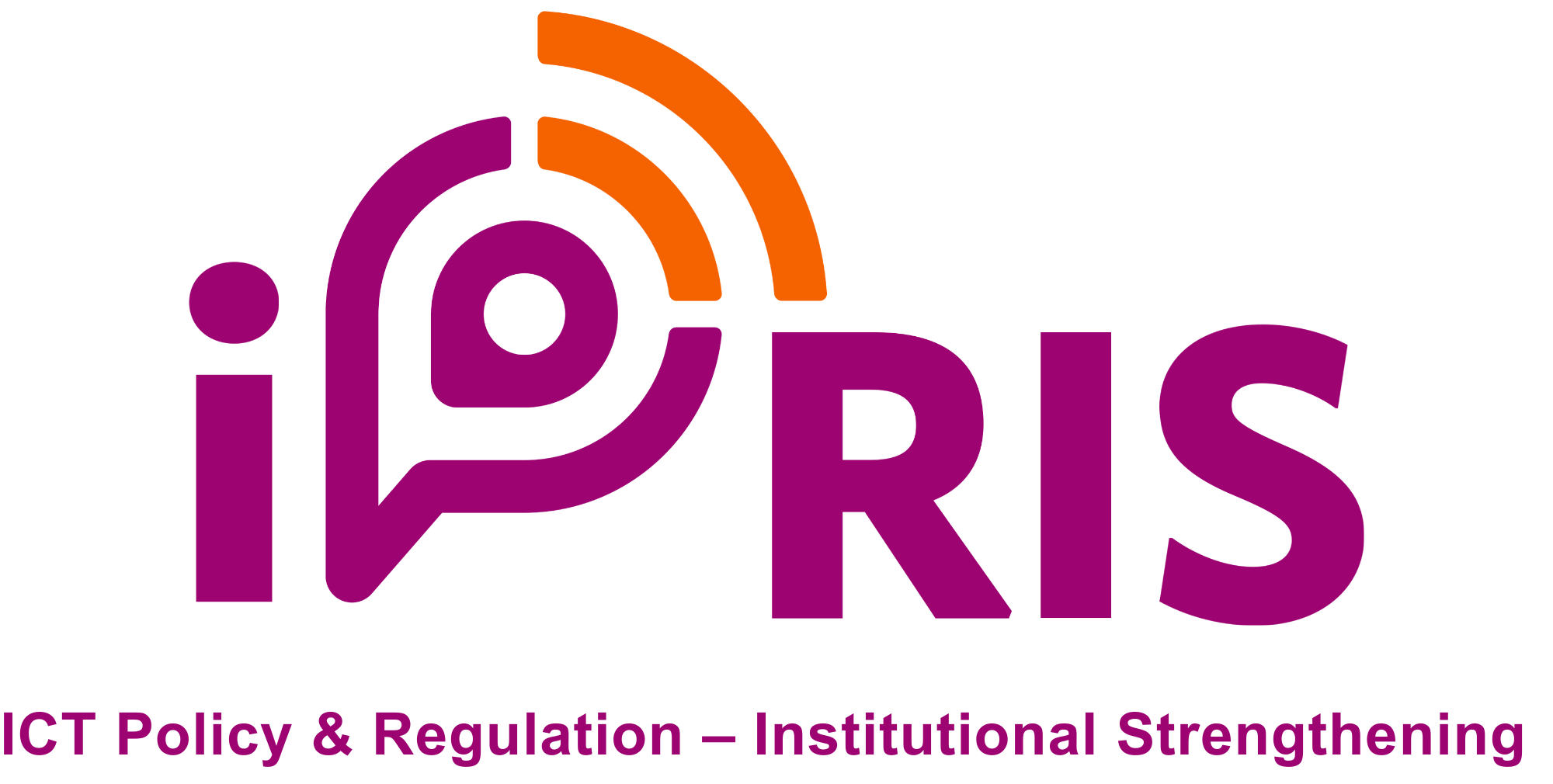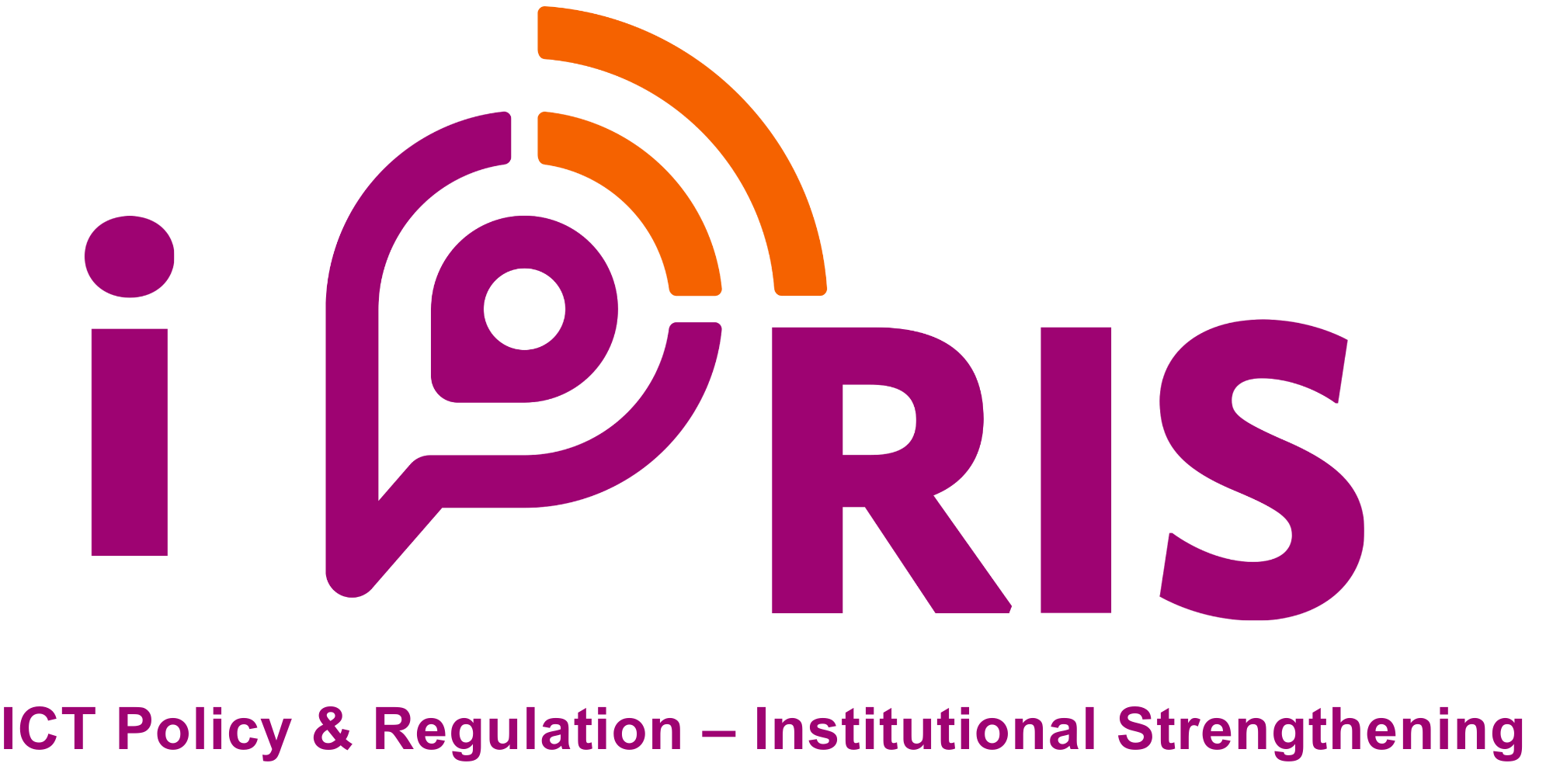The global community gathered in Geneva from 7-11 July for a landmark moment in digital cooperation: the WSIS+20 Forum and AI for Good Global Summit 2025. These events aimed to foster deeper alignment between long-standing digital development goals and the rapid evolution of artificial intelligence.
Organised by the International Telecommunication Union (ITU), the two events were purposefully timed to celebrate 20 years since the launch of the World Summit on the Information Society (WSIS) while also ensuring that AI innovation advances in ways that support the Sustainable Development Goals (SDGs). WSIS+20 reviewed progress on building inclusive, rights-based digital societies, while AI for Good 2025 focused on human-centred, ethical AI solutions for global good.
The event featured participation from National Regulatory Authorities (NRAs) such as; Uganda Communications Commission, Posts and Telecommunications Regulatory Authority of Zimbabwe (POTRAZ), Ivory Coast - Telecommunications Regulatory Authority (ARTCI), Regulatory Authority for Posts and Telecommunications of Guinea (ARPT), Nigerian Communications Commission (NCC), and National Communications Authority (NCA), Somalia. Other notable participants include the Ghana Cyber Security Authority, African ICT Alliance (AfICTA), the Ministry of Posts, Telecommunications and Digital Economy, Guinea, and the Ministry of ICT, Zimbabwe. Here are some highlights from the week-long convention.
Tune for inclusion and innovation: Days 1–2
On the opening days of WSIS+20 and AI for Good, high-level sessions focused on cybersecurity readiness, inclusive infrastructure, and ethical AI development.
Sessions covered various topics, including Digital Trust and Cybersecurity Readiness, Smart Cities, and Inclusive Infrastructure, as well as Bridging the AI Gap between Africa and the World. The sessions provided valuable insights that national regulators seeking to strengthen institutional approaches to equitable tech governance could draw upon.
The Smart Cities session highlighted innovations responding to local needs. Examples included voice-based emergency alerts in Senegal, designed to reach non-literate populations, and community-driven infrastructure planning in Nairobi.
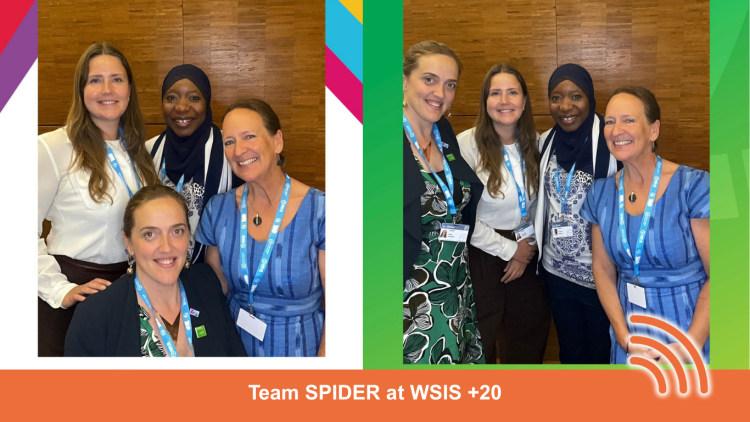
In AI-related sessions, there were mentions of glaring infrastructure inequalities. With just 1,000 GPUs across Africa vis-a-vis Meta's 250,000 (as highlighted by Dr. Amandeep Singh Gill), calls were made to prioritise African data sovereignty, invest in computer infrastructure, and bridge the capacity gaps.
Policy, access, and gender leadership: Day 3
Panel speakers had an opportunity to bring into sharp focus the national reality as well as the global aspirations:
"We have established over 202 community information centres in rural areas, bringing ICT and government services closer to the elderly and underserved."- H.E. Dr. Hon Tatenda Mavetera, Minister of ICT, Zimbabwe
Key takeaways from Leaders TalkX:
- Uganda addresses digital divide through rural broadband rollout, digital skills training, and open-data legislation (George William Nyombi Thembo, UCC Executive Director).
- Somalia builds its recovery story through ICT investment and inclusive regulation (Mustafa Sheik, NCA Somalia).
- Libya requires global coordination for cybersecurity and AI governance (H.E. Abdulbaset Albaour).
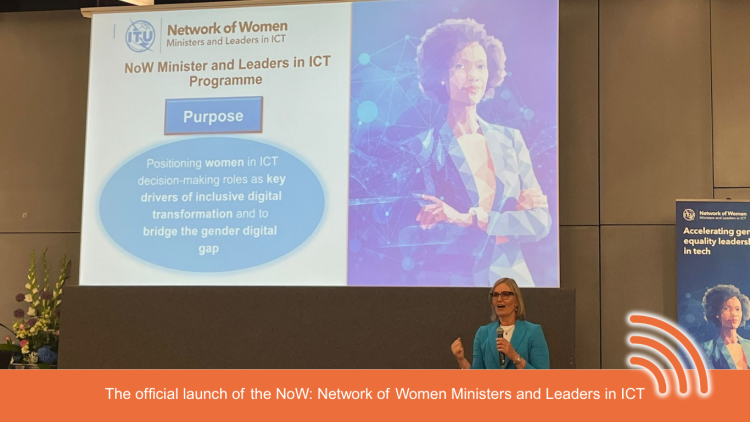
Meanwhile, delegates also graced the invitation-only grand launch of the Network of Women Ministers and Leaders in ICT (NoW) by the International Telecommunication Union (ITU). The session convened high-level participants, including H.E. Ms. Rose Pola Pricemou (Minister of Posts, Telecommunications and Digital Economy, Guinea) and Prof. Sandra Maximiano (Chair of ANACOM, Portugal), to drive strategic dialogue on bridging the gender digital divide surrounding emerging technologies.
The NoW platform aims to promote gender-inclusive leadership in ICT governance. The emphasis on capacity building, interregional cooperation, and inclusive policy leadership underscores the importance of ensuring that women's voices and leadership are at the core of digital futures.
Days 4 & 5 Highlights
As WSIS+20 entered the final phase, African voices, many coming from NRAs affiliated with iPRIS, took centre stage during discussions relating to inclusive innovation and strategic regulatory cooperation.
Multistakeholder cooperation and regional vision: Day 4
During a session titled Shaping Africa's ICT Future: The Role of Multi-stakeholder Engagement Beyond WSIS +20 (organised by AfICTA), there was a strong affirmation of the continent's digital ambitions. The session hosted representatives from partner NRAs and sector colleagues, such as Olatokunboh O. (Head of Digital Economy, NCC), who highlighted the importance of community-based networks to bridge the digital divide in Nigeria.
She stated that “We have looked at our community networks, and asked ourselves how do we encourage and drive community-based networks from a bottom-up approach, instead of trying to use a one-size-fits-all.”
Dr. Jamal Tonzua Seidu from the Ghana Cyber Security Agency shared a similar message, highlighting the necessary steps for the future.
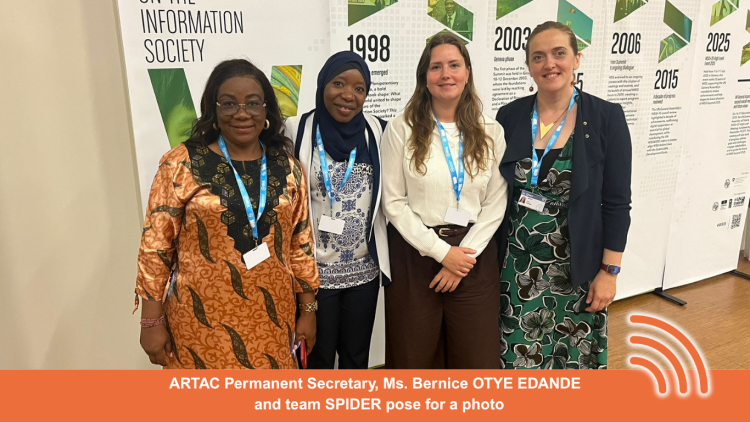 The importance of in-depth research stemming from African Higher Education Institutions and research organisations was highlighted by Prof. Abayomi Jegede, and the need for academia and industry to collaborate with other sectors for practical, wide-scale implementation.
The importance of in-depth research stemming from African Higher Education Institutions and research organisations was highlighted by Prof. Abayomi Jegede, and the need for academia and industry to collaborate with other sectors for practical, wide-scale implementation.
Debora Comparin asked everyone to imagine losing their identification documents and how that would impact their lives. She urged everyone to consider the importance of digital identity. The interoperability of digital identity for multi-sector use paves the way for crucial infrastructure to enable essential services, business interactions, digital cross-border relations, and a multitude of ecosystem solutions.
Wisdom Kwasi Donkor discussed Ghana's digital sovereignty, emphasising the need for accessible, secure, and responsive solutions that cater to the needs of Ghanaians. Local content creation is crucial for Africa's future. A multi-stakeholder model is the key to unlocking this future. African Regional bodies must take the lead in driving the continent's digitalisation.
Kossi AMESSINOU urged the manufacturing of digital infrastructure components and solutions to be based within the continent, especially harnessing the power of solar energy and sustainable energy.
The conversation brought across major themes in the digital space: enable NRAs to build inclusive and responsive sets of regulations; foster peer-to-peer learning across borders; and ground governance in African-led innovation.
Inclusion, innovation, and structural change: Day 5
In the Accelerating Structural Transformation and Industrialization in Developing Countries session, African thinkers revealed ways in which digitalisation may power economic renewal.
Prof. Sama Mbang of the Digital Transformation Alliance (Cameroon) gave instances of how African economies are leapfrogging outdated systems to synchronise industrial policy with frontier ICTs.
Moderator Prof. Adel Ben Youssef (AISMA, University Côte d’Azur) was joined by UNIDO’s Rafik Feki from Senegal, who presented investment and partnership models adapted to the region. The speakers noted that Industry 4.0 can stimulate inclusive growth and fill infrastructure deficits if public-private cooperation is strengthened and human capital development promoted.
A few key points were reinforced during the session: that regulation and innovation must co-evolve; institutional strength is key to resilience and uptake; African voices must be at the forefront of shaping the continent's Industry 4.0 future.
Gender, ageing, and digital equity
In Leveraging ICT for Ageing Populations session, panellists addressed the often-overlooked intersection of ageing, gender, and digital access.
Dr. Asma Brini (Tunisia), Karen Vianey Kenmoe (Cameroon), and other leaders challenged assumptions that the digital economy is only for the young. They called for ethical, inclusive design, where older women and marginalised communities are empowered by, not excluded from, technological change.
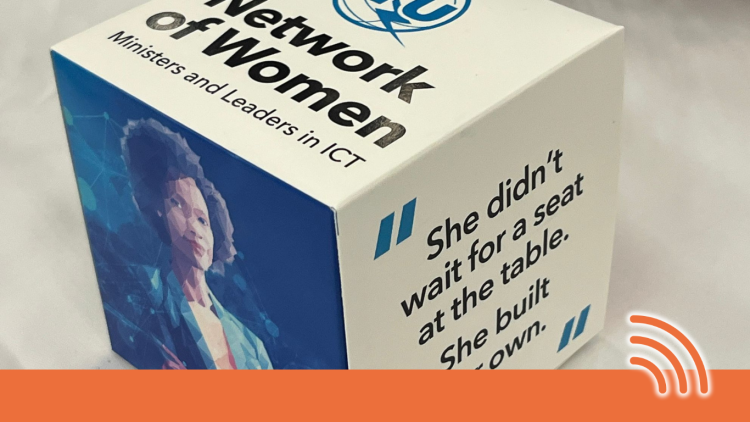
Their message presented a compelling argument for intentionally pursuing equity in AI, digital health, and technical education. As African NRAs seek to institute frameworks that work for all their populations, considerations such as age, gender, geography, and income will become vital questions for achieving tangible digital inclusion.
Looking ahead: A call for African-centred digital futures
Global stakeholders attended high-level discussions that reflected advocacy for inclusion, rights, ethics, and African leadership in digital transformation.
Reflection was evident upon shared ambitions to close access gaps, defend digital rights, and orient innovation toward the public good. From localised infrastructure planning and gender-inclusive leadership to AI governance and structural digital reform, discussions were clear: Africa is not catching up; Africa is shaping the digital future.
iPRIS is coordinated and implemented by SPIDER in strategic and technical partnership with the Swedish Post and Telecom Authority (PTS) and the Luxembourg Regulatory Institute (ILR).
iPRIS is funded by the European Union, Sweden, and Luxembourg as part of the Team Europe Initiative “D4D for Digital Economy and Society in Sub-Saharan Africa” (Code: 001).
